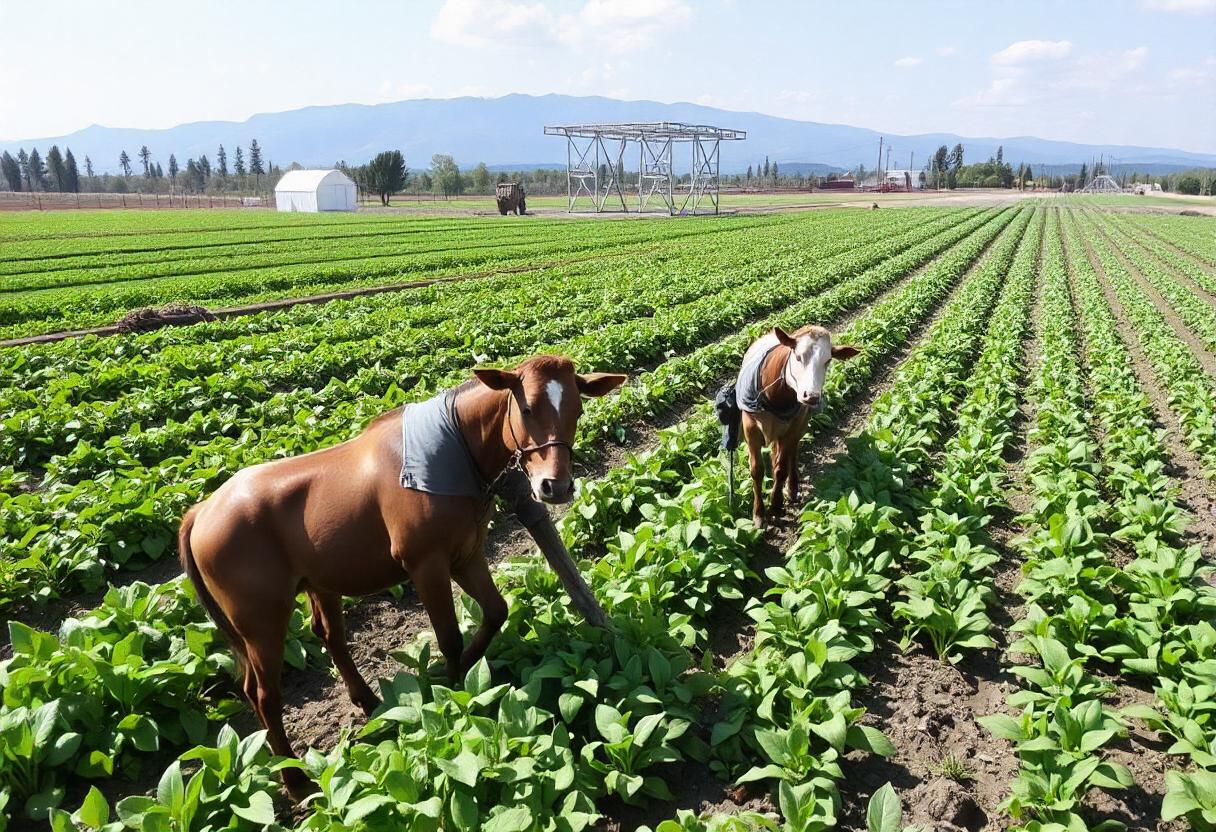
Modern agricultural practices have revolutionized the way we produce food, aiming to meet the growing global population’s needs while also addressing environmental and sustainability concerns. These practices incorporate advanced technologies, innovative techniques, and data-driven approaches to enhance productivity, efficiency, and sustainability in farming.
Precision Agriculture
One of the key advancements in modern agriculture is precision farming. This approach uses GPS technology, sensors, and data analytics to optimize field-level management regarding crop farming. By precisely measuring variables such as soil moisture, nutrient levels, and crop health, farmers can make data-driven decisions that maximize yields and reduce waste. Precision agriculture also includes variable rate technology (VRT), which allows for the application of inputs like fertilizers and pesticides at different rates across a field, depending on the specific needs of different areas.
Vertical Farming
Vertical farming is a groundbreaking practice that involves growing crops in stacked layers or vertically inclined surfaces. This method is typically implemented in controlled indoor environments, such as warehouses or skyscrapers, and utilizes hydroponics, aeroponics, or aquaponics systems. By optimizing space usage and controlling environmental factors such as light, temperature, and humidity, vertical farming can produce high yields in urban areas, reduce the need for transportation, and minimize the use of pesticides and herbicides.
Hydroponics and Aquaponics
Hydroponics is a method of growing plants without soil, using nutrient-rich water solutions instead. This practice allows for precise control over nutrient delivery and can significantly increase growth rates and yields compared to traditional soil-based farming. Aquaponics combines hydroponics with aquaculture, where fish and plants are grown together in a symbiotic environment. The fish produce waste that provides nutrients for the plants, while the plants help filter and clean the water for the fish. This sustainable practice conserves water and reduces the need for chemical fertilizers.
Genetically Modified Organisms (GMOs)
Genetically modified organisms have become a significant component of modern agriculture. GMOs are engineered to possess desirable traits, such as resistance to pests, diseases, or environmental conditions, or improved nutritional content. By incorporating specific genes into crop plants, farmers can enhance yields, reduce the reliance on chemical inputs, and improve food security. Despite ongoing debates about their safety and environmental impact, GMOs continue to play a crucial role in addressing global food challenges.
Sustainable Farming Practices
Sustainability is at the heart of many modern agricultural practices. Techniques such as crop rotation, cover cropping, and reduced tillage are designed to maintain soil health, enhance biodiversity, and reduce the environmental footprint of farming. Crop rotation involves alternating different types of crops in the same field to improve soil fertility and reduce pest and disease pressures. Cover cropping uses plants to cover the soil between main crop growing seasons, preventing erosion and enriching soil organic matter. Reduced tillage minimizes soil disturbance, which helps preserve soil structure and organic content.
Smart Irrigation Systems
Water management is critical in agriculture, and modern smart irrigation systems have transformed how water is applied to crops. These systems use sensors and weather data to determine the optimal amount of water needed for irrigation. Techniques such as drip irrigation deliver water directly to the plant’s root zone, reducing evaporation and runoff. Smart irrigation systems can also be integrated with weather forecasting tools to adjust watering schedules based on anticipated rainfall, further conserving water resources.
Drones and Robotics
Drones and robotics have become valuable tools in modern agriculture, offering new ways to monitor and manage crops. Drones equipped with cameras and sensors can capture high-resolution images and data, allowing farmers to assess crop health, monitor pest infestations, and evaluate field conditions from above. Robotics, including autonomous tractors and harvesters, automate tasks such as planting, weeding, and harvesting, increasing efficiency and reducing labor costs.
Soil Health Management
Maintaining soil health is essential for sustainable agriculture, and modern practices focus on enhancing soil quality through various methods. Techniques such as organic matter addition, soil testing, and the use of soil conditioners help improve soil structure, fertility, and water-holding capacity. By adopting practices that promote soil health, farmers can increase productivity while minimizing the impact on the environment.
Data-Driven Decision Making
The integration of big data and analytics into agriculture has revolutionized decision-making processes. By collecting and analyzing vast amounts of data from various sources, including weather patterns, soil conditions, and crop performance, farmers can make informed decisions that optimize production and resource use. Data-driven approaches enable predictive analytics, which can forecast potential issues and provide actionable insights to improve farm management.
Modern agricultural practices continue to evolve, driven by technological advancements and a growing emphasis on sustainability. These innovations are reshaping the agricultural landscape, aiming to create a more efficient, productive, and environmentally friendly food system.